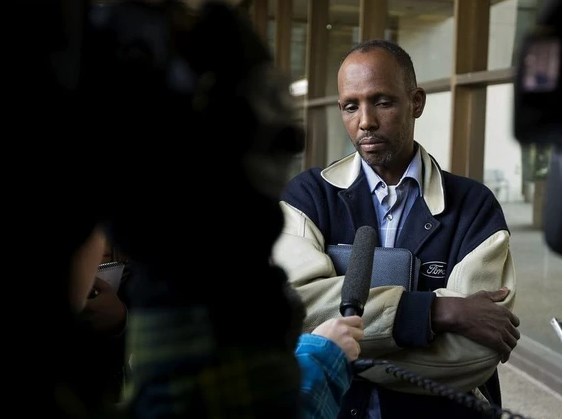
Lisa Johnson
Sunday May 15, 2022

Still searching for answers on dozens of unsolved murders,
members of Edmonton’s Somali community connected with police at an event
Saturday hoping it would help.
Mahamad Accord, an advocate with the Taccalusa Institute,
estimated the murders of over 70 Somali youth and men since 2005 have yet to be
solved in Alberta.
At a town hall event held Saturday, Accord said he’s looking
for better accountability from police, including specifics on budget resources
being put into the cases.
During a question and answer portion of the event, he said
it’s challenging to hear the police speak about how they do their jobs in broad
terms when what the community wants are details.
“That’s not what we ask — we ask you ‘do you put the money
there? Did you hire people to do that?'” he said.
The event aimed to identify what’s preventing the resolution
of outstanding cases, and help come up with recommendations that would help
prevent future deaths.
Insp. Brent Dahlseide of the major crimes branch of the
Edmonton Police Service said he attended to hear the concerns of the community.
He said since 2004, there have been 59 homicides in Edmonton involving members
of Central and East African communities, and 29 have been solved and cleared,
meaning a suspect was identified and charged or a warrant was issued.
“It could be the smallest thing that could turn an
investigation in a positive way,” he said.
Dahlseide said a 2011 remark from Edmonton police Det. Bill
Clark — who complained police weren’t getting co-operation from witnesses in a
murder investigation, sparking heavy criticism from the Somali community —
still haunts Dahlseide.
“By no means do we just say ‘if you aren’t interested in
helping us we’re not interested in the investigation.’ Absolutely not,” said
Dahlseide Saturday. He added the Edmonton police hired a family liaison
co-ordinator in the beginning of May who works with investigators to update
family members and surviving victims on cases.
“That’s a part that we’re working to do better,” he said.
Guled Kassim, a member of the local Somali community who
helped moderate the event, said it doesn’t help if police can’t get information,
nor is it helpful to the community if it doesn’t trust police to follow
through.
“I think somehow there is that … disconnect. So my take away
is I don’t know how many more of these we have to do before they realize that
both parties have to communicate with each other,” he said.
Along with the Taccalusa Institute, the town hall was
organized by the John Humphrey Centre for Peace and Human Rights, and the
Coalition for Justice and Human Rights.